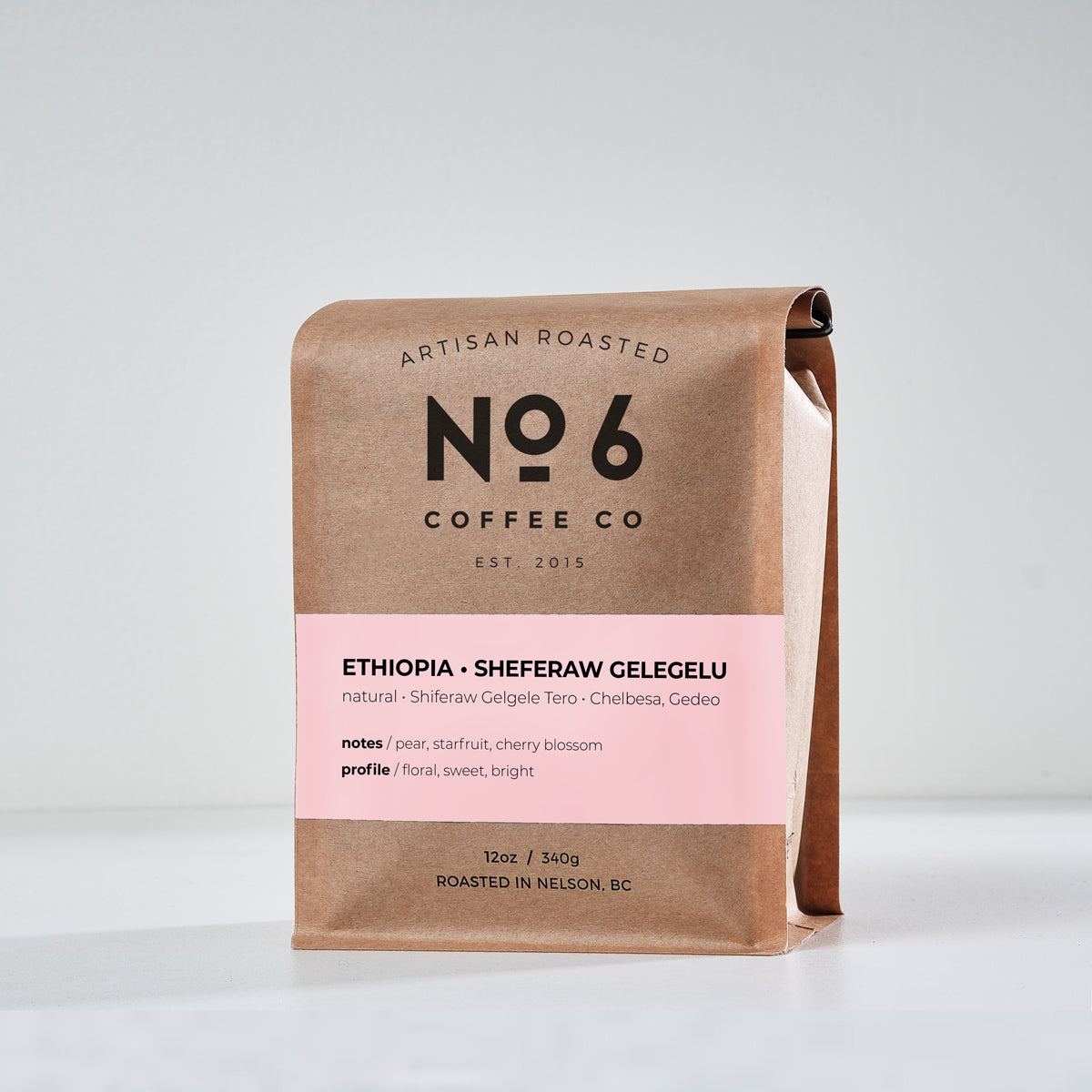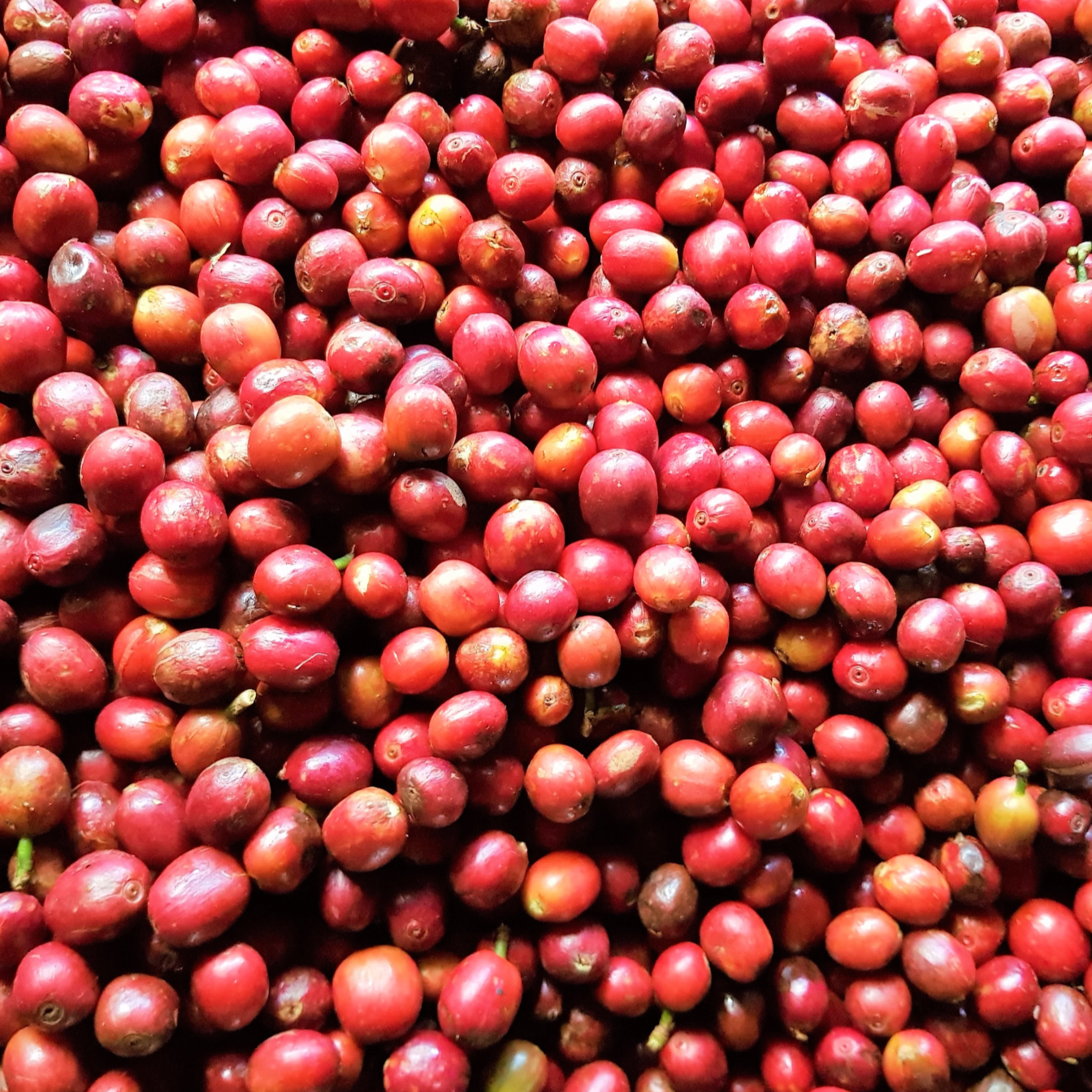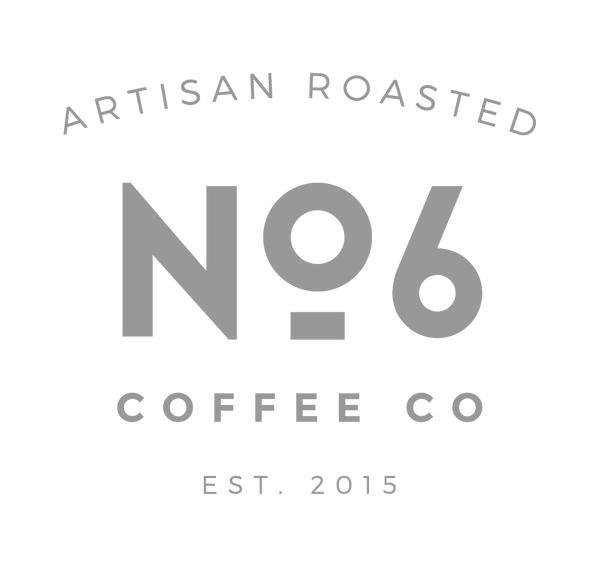Sheferaw Gelegelu
Sheferaw Gelegelu
| country | Ethiopia |
|---|---|
| region | Gedeb, Gedeo |
| farm | single farm |
| producer | Shiferaw Gelgele Tero |
| altitude | 2150 masl |
| varietal | Heirloom cultivars |
| process | natural |
| certification | organic |
| notes | pear, starfruit, cherry blossom |
| profile | floral, sweet, clean finish |
| importer | Roya Coffee |
Shiferaw Gelgele Tero grows coffee on his 3.8 hectare farm in the Chelbesa community, located in the south-eastern corner of the coveted Gedeo Zone - the narrow section of plateau dense with savvy farmers whose coffee is known as “Yirgacheffe”. This more remote corner of the Gedeo plateau centers its commerce around the trading city of Gedeb, a bustling outpost that links commerce between Gedeo and Guji zones, and, it must be mentioned, produces some of the most beautifully perfumed and candy-like natural coffees one can find in all of Ethiopia. The communities surrounding Gedeb reach some of the highest growing elevations for coffee in the world, and are a truly enchanting part of the long drive into Guji. In addition to coffee Shiferaw grows common subsistence and local market crops like beans, cabbage, and enset, a fruit-less relative of the banana tree whose inner pulp is packed into cakes and fermented underground, and eaten as a staple starch year round.
Coffee is Shiferaw’s main source of income that he uses to support his family. Ripe cherries for this natural processed coffee were carefully hand sorted and floated to remove less dense coffee beans before drying on raised beds for 15-21 days. Beds are carefully constructed to ensure proper air circulation and temperature control, for optimal drying. During processing, cherries are often covered during the afternoons—a very characteristic technique of southern Gedeo, where the midday sun is searingly intense. Once the cherries finished drying to the necessary 11 percent moisture, they are transported to Addis Ababa, the capital of Ethiopia, to be milled and prepared for export through the Yirgacheffe Coffee Farmers Cooperative Union, the umbrella organization that oversees Shiferaw’s local Chelbesa cooperative.
Clean Coffee
Clean Coffee
We believe coffee should be both delicious and responsibly sourced. That’s why we only work with specialty-grade coffees that are carefully harvested, dried, and stored. Once processed, every lot is sealed in GrainPro bags to protect it from moisture during transit and storage.
The result is clean, safe coffee that reflects the care of everyone involved. Some people have asked us about things like mold or mycotoxins, especially ochratoxin A (OTA), which can form in poorly handled coffees. It’s a fair question, but in coffees of this quality, stored and roasted the way we do, the risk is extremely low.
If you’d like to know more, we’re happy to share additional information. Just ask, we’re all about keeping things open and honest.
Schedule
Schedule
Our weekly ordering cutoff is Tuesday at 9am. All orders placed before this time will be roasted, packaged and shipped by Wednesday. All orders received after this time are subject to shipping the following week depending on overflow.
Shipping Rates
Shipping Rates
Our current shipping rates are as follows:
Local Delivery Rates within 2km
$5.00 for orders between $0-$20
$2.50 for orders between $20-$40
FREE for orders over $40
Canadian Shipping (with tracking)
Standard rates for orders between $0-$36
$10 for orders between $36-$75
FREE for orders over $75
US Shipping (with tracking)
Standard rates for orders between $0-$100
FREE for orders over $100
Packaging
Packaging
100% Recyclable
Our coffee bags are made of 100% recyclable plastic and widely accepted at recycling depots across Canada, making it easy for you to responsibly dispose. Its recyclable materials ensure that it can be repurposed efficiently, contributing to environmental sustainability efforts and promoting a circular economy model.
Volume Discounts
Volume Discounts
We're dropping the bomb on exclusive volume discounts on our entire coffee collection. Mix and match any single origin and/or blends and get the following discounts automatically applied at checkout.
| 15 - 44 bags | 10% off |
| 45 - 89 bags | 15% off |
| 90 - 179 bags | 20% off |
| 180+ bags | 25% off |
Out of stock
15 bags, mix & match = 10% off
Discounts automatically applied at checkout.
Couldn't load pickup availability





